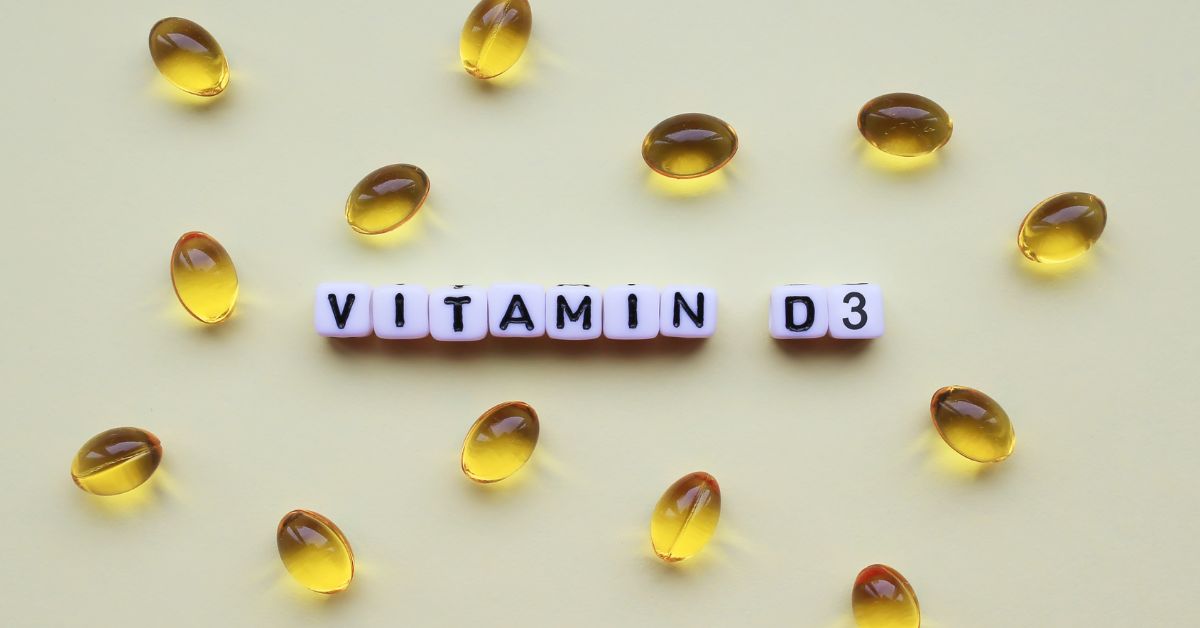What is Vitamin D3 for? Discover the Vital Role of This Vitamin in Your Body

Did you know that a simple vitamin can be crucial for your physical health, immunity and emotional well-being? We are talking about vitamin D3, one of the most studied in recent years and which, unfortunately, continues to be lacking in the bodies of many people in Portugal.
If you are wondering “vitamin D3 what is it for?”, then this article is for you. Let's explore the main benefits of vitamin D3, the signs of deficiency, how to get it and, of course, how to supplement safely and effectively.
What is Vitamin D3?
THE vitamin D3, or cholecalciferol, is the most active and effective form of vitamin D, and is produced naturally in the skin when it is exposed to sunlight. However, it can also be obtained through food or supplements.
Unlike other vitamins, vitamin D3 acts more like a hormone than a classic nutrient. It is involved in a number of fundamental processes, from bone health to immune function.
Unfortunately, its natural production is often compromised, especially during the winter months, when there are fewer hours of sunlight and the sun is lower on the horizon. Therefore, supplementation is becoming increasingly recommended, especially in Portugal, where Vitamin D deficiency is more common than you might think.
What is Vitamin D3 for?
THE vitamin D3 is a true ally of global health. Below, we explain its main benefits:
1. Calcium Absorption and Bone Strengthening
The best known function of vitamin D3 is to facilitate the absorption of calcium and phosphorus in the intestine, which is essential for the formation and maintenance of strong bones and teeth. Without adequate levels of this vitamin, even if you consume foods rich in calcium, the body will not be able to absorb it properly.
Therefore, the vitamin D3 is essential in preventing diseases such as osteoporosis, the rickets (in children) and the osteomalacia (in adults).
2. Strengthening the Immune System
Another vital benefit of vitamin D3 is its role in modulation of the immune system. This vitamin helps the body fight infections more efficiently, and is especially important in preventing flu, colds and respiratory infections.
Recent studies also show that vitamin D3 may reduce the risk of autoimmune diseases such as multiple sclerosis, lupus, and rheumatoid arthritis.

3. Mood Improvement and Depression Prevention
Did you know that vitamin D3 deficiency is associated with symptoms of depression, anxiety and chronic fatigue? This is because this vitamin influences the production of serotonin — a neurotransmitter crucial for emotional well-being.
Supplementation of vitamin D3 can help regulate mood, improve sleep quality and even combat the symptoms of seasonal depression, common in the autumn and winter months.
4. Maintaining Muscle Strength and Preventing Falls
THE vitamin D3 It also plays a relevant role in muscle function, especially in older people. Its deficiency is associated with muscle weakness, balance difficulties and an increased risk of falls — one of the main causes of hospitalization in the elderly.
Adequate intake of this vitamin contributes to maintaining strength and mobility throughout aging.
5. Reduced Risk of Chronic Diseases
Studies indicate that vitamin D3 deficiency may be related to an increased risk of developing diseases such as:
- Type 2 diabetes
- Cardiovascular diseases
- High blood pressure
- Cancers (namely breast, colon and prostate)
Although the mechanisms are still being studied, their anti-inflammatory and immune system regulating effect may justify these protective effects.
Signs of Vitamin D3 Deficiency
The lack of vitamin D3 It is often silent, but symptoms may become evident over time:
- Constant fatigue
- Muscle and bone pain
- Weakness
- Hair loss
- Frequent infections
- Poor concentration and mood swings
If you have several of these symptoms, it is best to have a blood test to assess your vitamin D levels.
Who is Most at Risk?
Some population groups are more likely to have a deficit of vitamin D3:
- Elderly
- People with little sun exposure
- People with darker skin
- Overweight individuals
- Vegetarians and vegans
- People with chronic kidney or digestive diseases
In Portugal, it is common for levels of vitamin D3 drop dramatically in autumn and winter, when sun exposure is reduced.
How to Get Vitamin D3?
THE vitamin D3 can be obtained through three main sources:
1. Sun Exposure
It is the most natural form, but also the most difficult to control. About 15 to 30 minutes a day of direct sun exposure (without sunscreen) is enough, but many factors interfere:
- Season
- Latitude
- Age
- Skin pigmentation
- Use of sun creams
2. Food
Some foods provide vitamin D3, such as:
- Oily fish (salmon, sardines, mackerel)
- Egg yolk
- Liver
- Fortified milk and cereals
- Cod liver oil
However, dietary intake is rarely sufficient to reach ideal levels.
3. Supplementation
The most effective and controlled way to ensure good levels of vitamin D3 is through supplements. These are available in various dosages and formats (tablets, capsules, drops) and are especially recommended during the cold months.
Find a variety of supplement options vitamin D3 in the online store of Docnutry, with high quality formulas and excellent absorption.
What is the Recommended Dose?
The ideal dose of vitamin D3 depends on age, health status, sun exposure and presence of deficiencies. In general:
- Healthy adults: 600 to 1000 IU per day
- Elderly or people with deficiency: up to 2000 IU per day
- Severe cases (with medical advice): 4000 IU or more
It is always advisable to speak to a healthcare professional before starting any supplementation.
Does Vitamin D3 Have Side Effects?
Yes, like any nutrient, excess vitamin D3 can be harmful. Excessive consumption can cause:
- Nausea
- Vomiting
- Mental confusion
- High calcium levels (hypercalcemia)
- Kidney problems
Therefore, you should not exceed the recommended doses without medical advice.
Conclusion: Your Health Will Thank You
Now that you know vitamin D3 what is it for, it's easy to see why this vitamin deserves more attention in your daily life. From strengthening the immune system to bone and mental health, vitamin D3 is a true ally of longevity and well-being.
If you feel constantly fatigued, have frequent aches and pains, or spend a lot of time indoors, it may be time to assess your levels and consider a supplement.
Explore Our Range of Vitamin D3 Products
Want to ensure optimal levels of vitamin D? Discover the best supplement options in our store now:
👉 See supplements with vitamin D3
At Docnutry, we select quality products so that you can take the best care of yourself. Your health starts with conscious choices — and vitamin D3 is one of them.
